How can I make my front door more attractive? 7 ways to add instant curb appeal
Interesting lighting, statement color and dashing ironmongery are putting the often-overlooked front door into the design spotlight once again

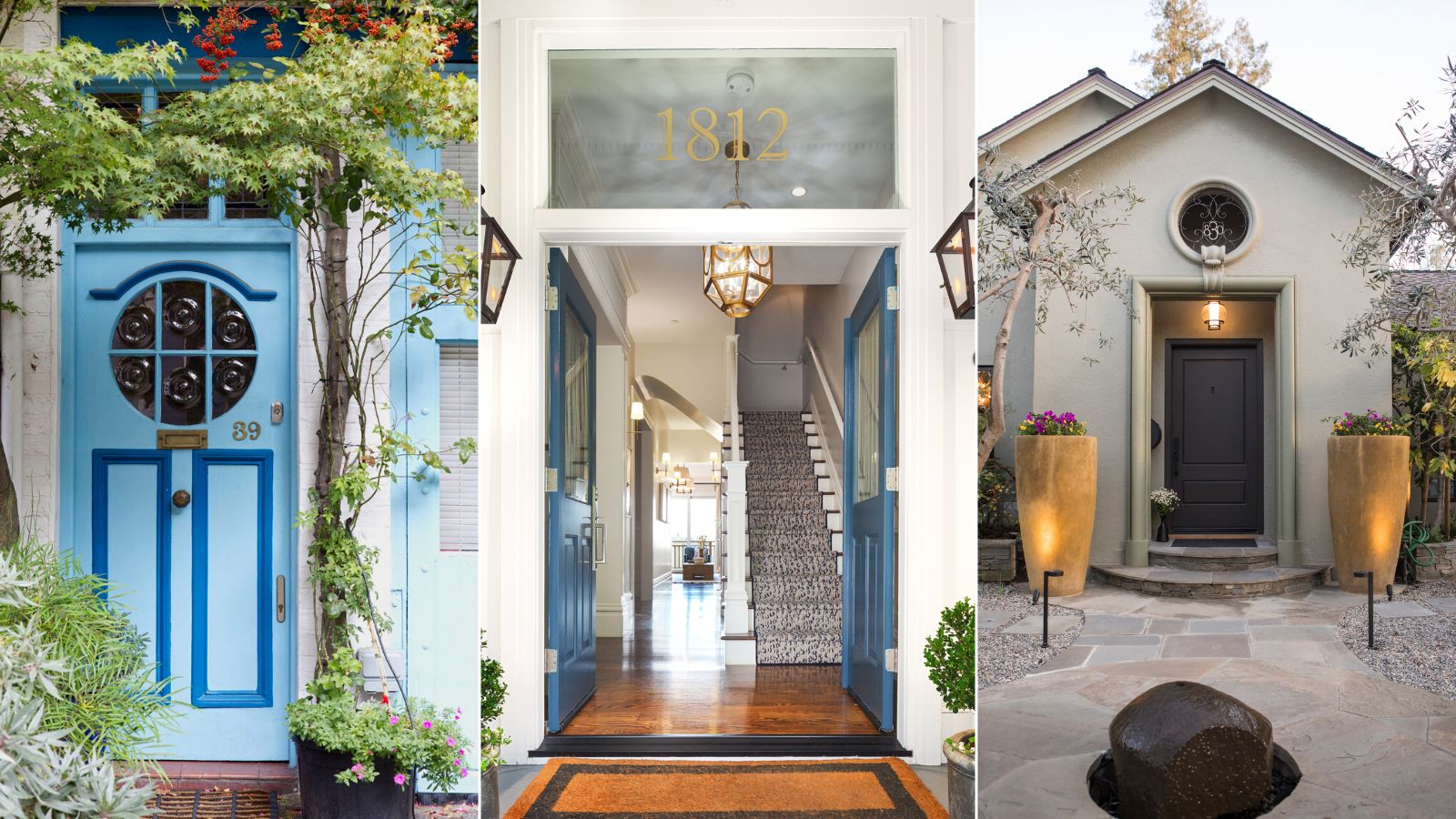
Greet visitors, yourself and your family with an attractive front door that isn’t a blot on your home’s landscape.
'Your chosen front door ideas can say so much about the occupants: The entrance is the first encounter for you, your visitors and the interiors that lie within,' says designer Monique Tollgard, founder, Tollgard Design.
'The materials and front door colors we use allow us to introduce the "red thread" of the house immediately. For us, the front door is so important; it is the start of the story and first and last impressions are so important.'
These exquisite ways to make a front door more attractive are a great starting point to help you choose the right designs and ideas for your home – what you choose should still reflect the age of your home, the existing finishes of your property, your existing front yard landscaping ideas, and what your neighbors have.
How can I make my front door more attractive?
The term ‘curb appeal’ refers to the attractiveness of a home’s external appearance, particularly the way it looks when viewed from the street – that all-important first impression that moulds the opinion of every visitor. Designing a home with universally aesthetic appeal is a tall order.
Here, we offer some golden rules for creating curb appeal with an attractive front door, talking to interior designers to pull in some of the best advice around for ensuring your front door looks perfect.
1. Invest in a new front door
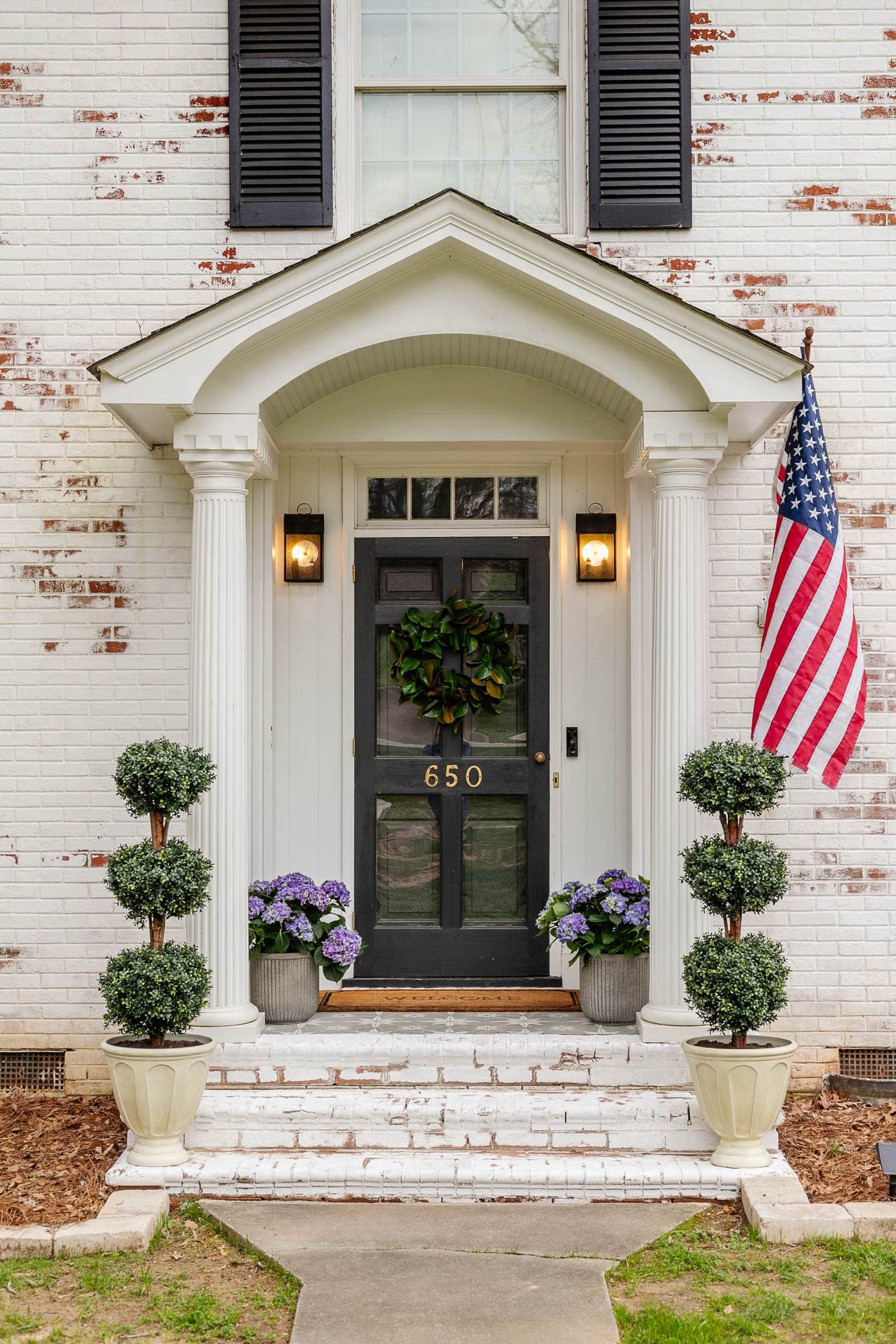
The existing door might be ripe for change because it doesn’t suit the style of your home, is allowing heat to leak out, requires time-consuming upkeep, or isn’t as secure as it could be. Swapping it for a new design could boost your home’s curb appeal, help reduce energy bills, and keep both occupants and contents safer.
Design expertise in your inbox – from inspiring decorating ideas and beautiful celebrity homes to practical gardening advice and shopping round-ups.
If you’ve never changed your front door before, you might be amazed by the range of materials in which they’re available. Personal preference will guide you, but what the door’s made from also has a huge influence on what you can expect to pay. Consider, too, that maintenance requirements for the different front door materials vary, and factor this into your choice.
2. Give your front door a color refresh
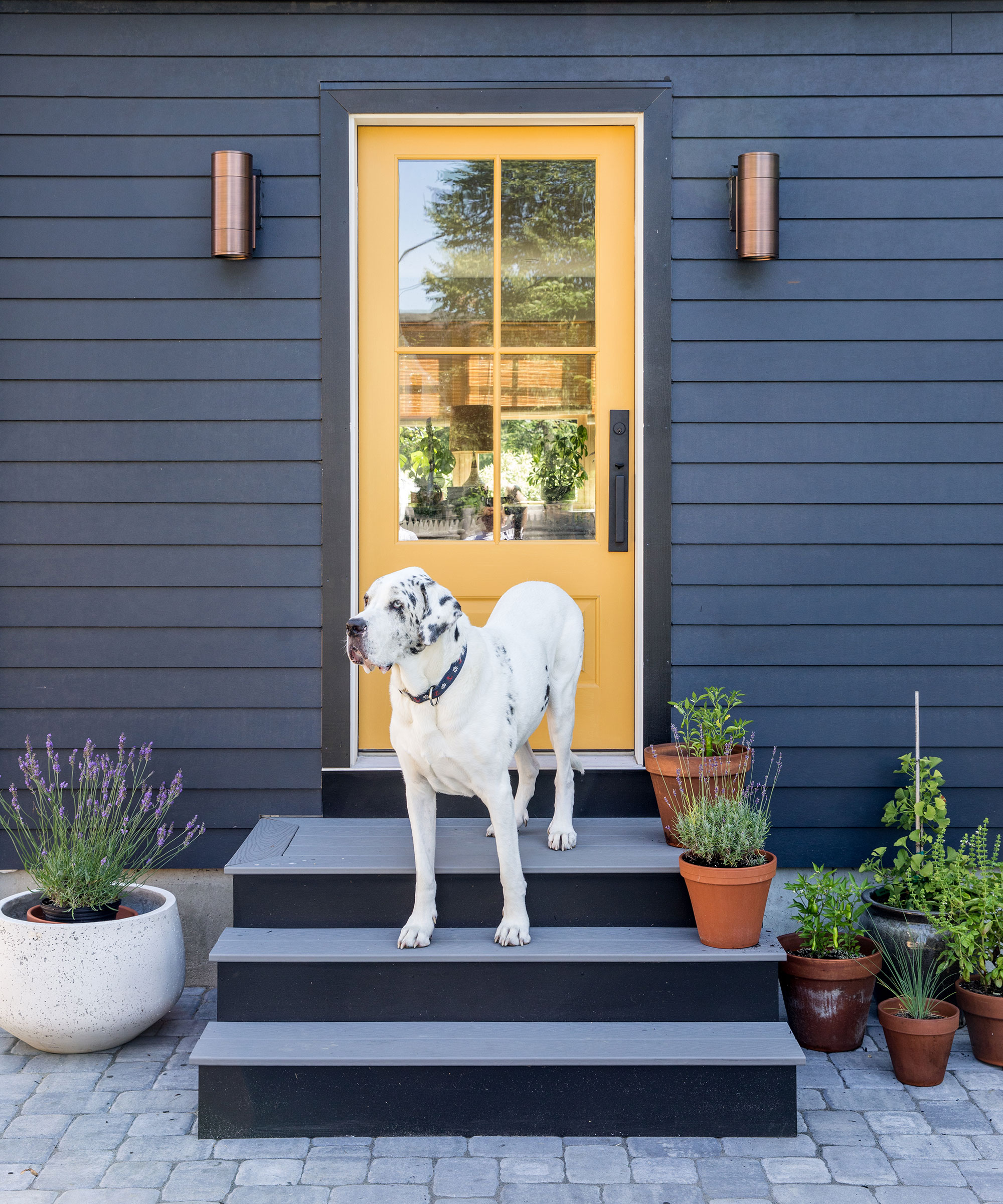
The importance of choosing the right front door shouldn’t be underestimated as not only does it set the tone for your property, it’s also essential for maintaining the security of your home. Your front door should be in keeping with the age, style and scale of your house to ensure it stands outs for all the right reasons. Bear in mind that your front door design will affect which front door paint ideas suit, as well as the period of your home and the color of paintwork visible from the street and your front porch ideas.
Think about whether you want to match the door to the color of your windows, or do you want to go for a high contrast. Don’t forget about the ironmongery too, as this will have an impact on the overall look.
You’ll also need to consider if you’re prepared to take on any ongoing maintenance. If your front door is protected from the weather by a porch or overhang, maintenance will be less of an issue, but those with doors that are exposed to the elements will need to make durability more of a priority.
Here interior designer firm Tyler Karu Design gave the front door of this New England home an exuberant update for spring. 'Much research has been done into how colors affect our mood,' says Tyler Karu. 'Yellow inspires optimism, creating a summery feel; team it with charcoal or navy blue for truly modern look.'
3. Use paint to create unique door
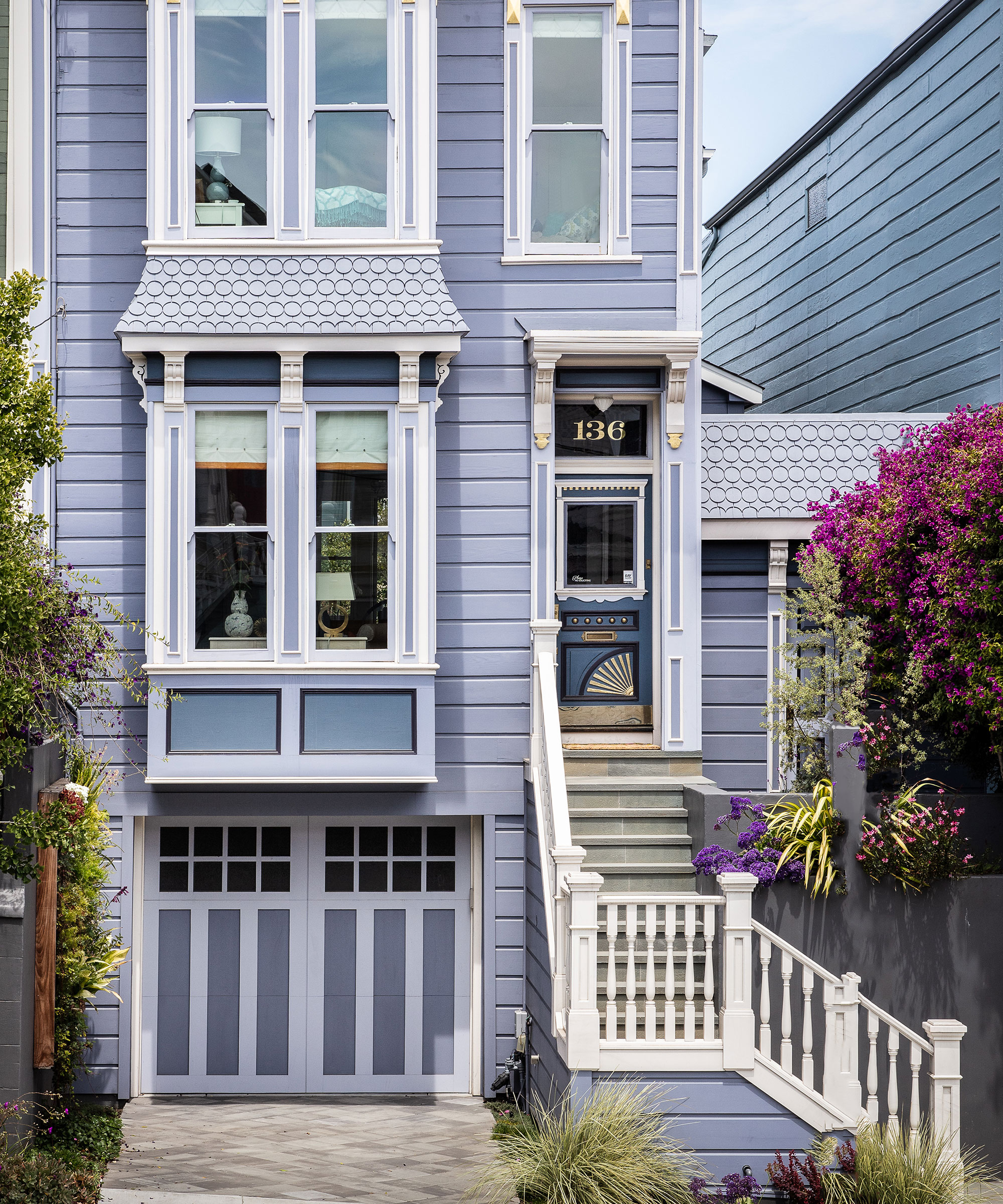
First impressions are count, so in terms of setting the tone of a home the front door is the perfect place to start. The door décor can be one of the easiest ways to revive the look of a tired exterior, while on a street of identical houses, use creative color to give it a stamp of personality.
‘People are becoming braver with their color choices,’ says Matt Higgs from Klöeber. ‘We’re seeing requests for brightly colored doors, such as orange and yellow, as opposed to the more standard greys that have been so in demand recently.'
Bold and daring, this impressive home in the Noe Valley, designed by Heaton + Williams is a riot of striking color. Not only has the entire façade been beautifully painted to stand out, but imaginative and decorative door detailing only serves to add to the charm.
4. Hang seasonal wreath
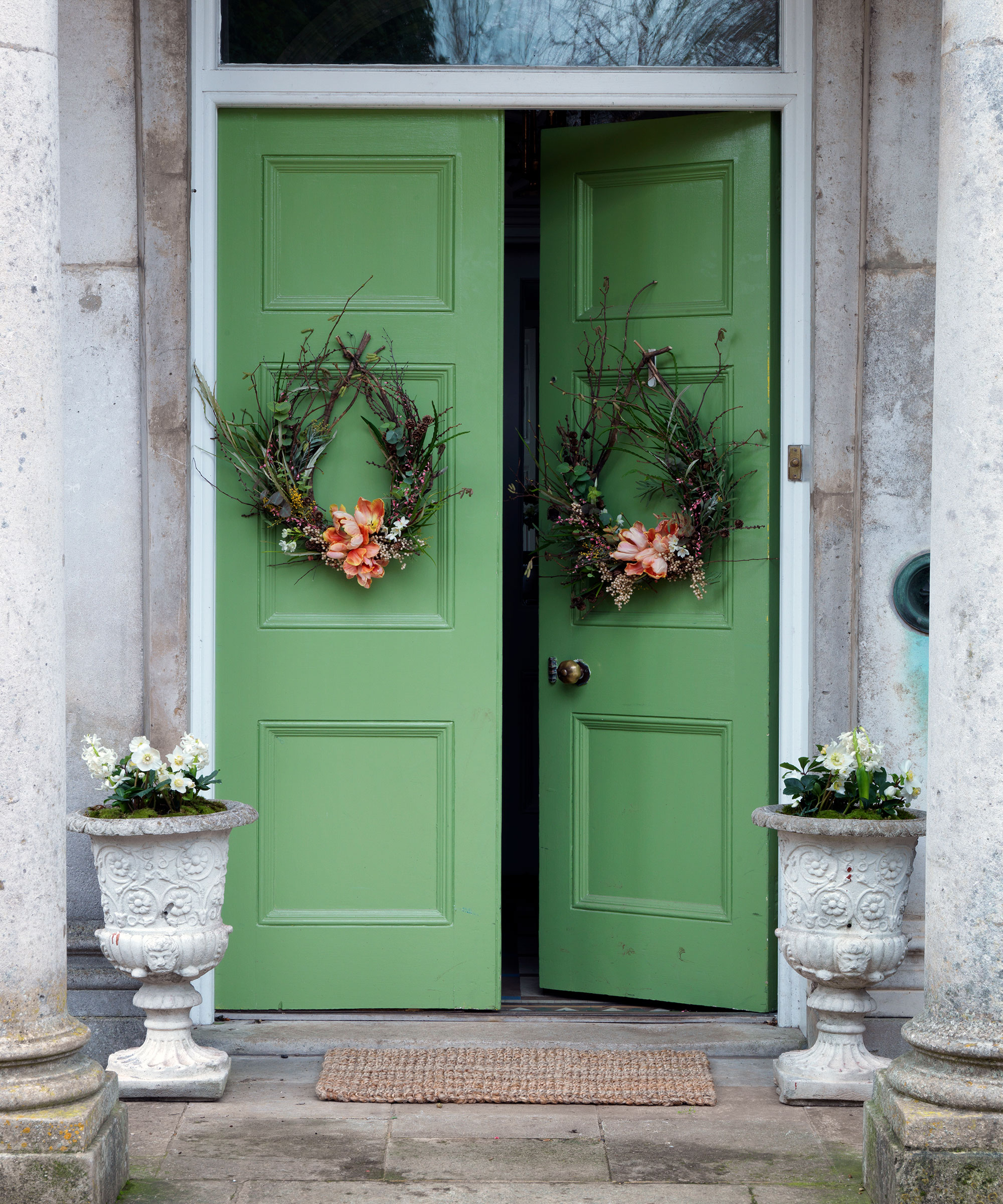
Wreaths are not just for Christmas or Easter, they work just as beautifully for fall and spring door décor, too.
Turn up the style by opting for a pair of wreaths for a symmetrical appearance. Symmetry in interior design is a technique used by designers to create an space that looks incredibly cohesive and tailored – and therefore welcoming and inviting.
Using architectural elements such as front doors is a good place to start, so give a front door a burst of color and intrigue with a fragrant and colorful wreath that is blooming with fresh foliage. Have fun playing about with scale and color but keep the overall effect simple and allow the natural beauty of the flowers to shine through.
5. Introduce symmetrical elements

The power of symmetry is so good that we had to mention it twice, and it is the best way to make your front door more attractive. A simple solution is to introduce a symmetrical pair of evergreen planters to your front décor ideas, as demonstrated in this space by Margaret Ash Design.
Clipped evergreens are perfect for creating a punctuation point in your planting scheme, for introducing low shapes to edge paths and to add definition to containers. Choose lollipop bay trees, smart box balls and pompom conifers to add strong shapes that help to define spaces. Topiary is also low-maintenance and looks good all year round.
‘I use topiary and evergreen plants and hedges as the backbone to my designs,’ says garden designer Richard Miers, whose work is known for using symmetry to create a sense of balance and proportion. ‘Using sculpted evergreens is a timelessly elegant way to provide focal points, frame key views and provide interest in spring.
6. Think about lighting for style and security
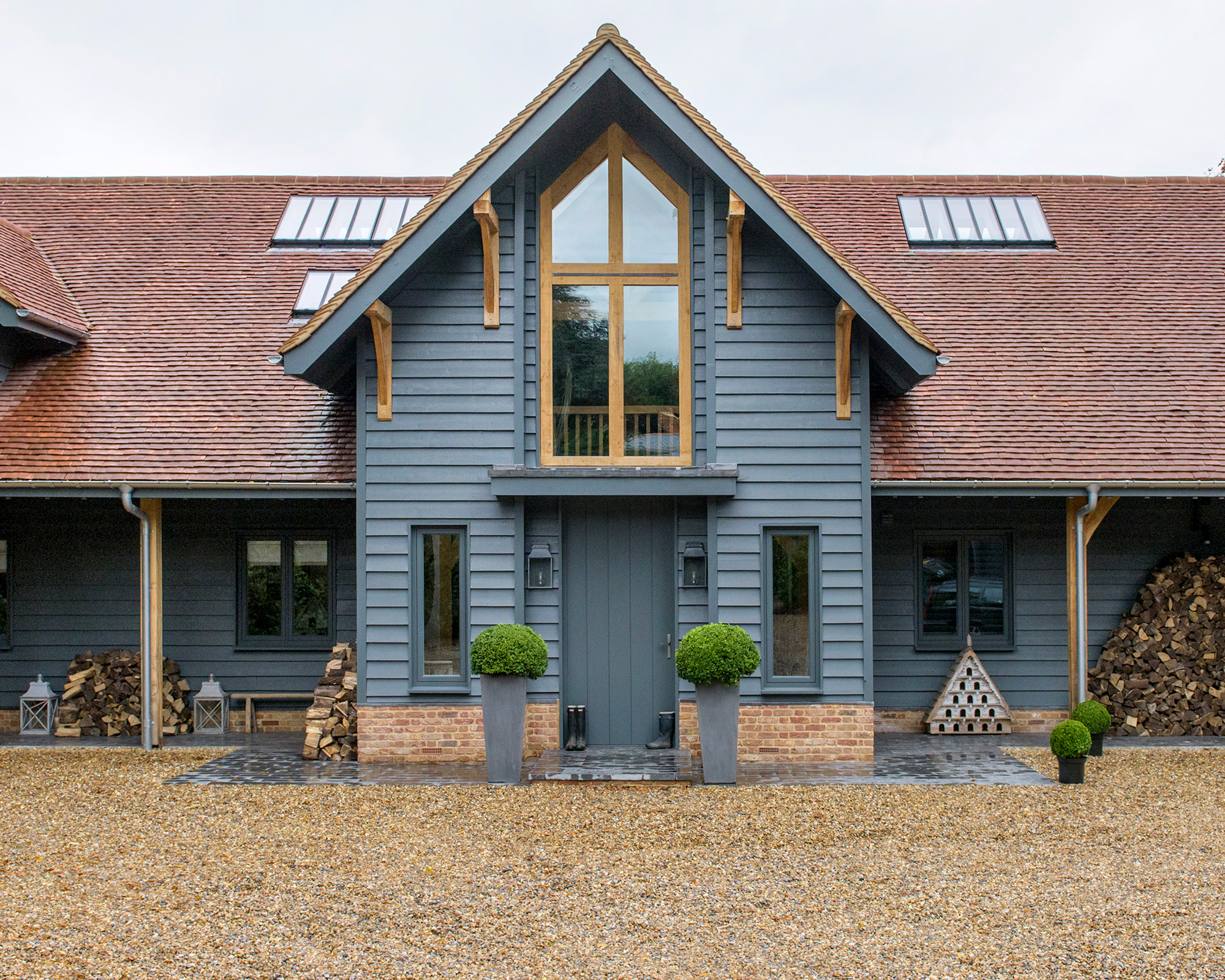
Front door lighting isn’t just for turning your front yard walkway into a Christmas wonderland. It can be used year-round to create appealing effects. Lights positioned on either side of a front door are a useful security feature, especially if they react to movement and are combined with a camera.
A light by the door, either traditional or modern, is inviting to come home to in winter. You can also have lights that highlight the house, in the yard focused on planting or marking the gate/driveway. Dusk to dawn lights have sensors that allow them to turn on and off automatically
You can transform your front door into magical spaces with front yard lighting ideas. As dusk descends, carefully positioned outdoor lighting can play a central role, and they will create a sense of depth and space with the interplay of light and shadow.
7. Introduce smart tech
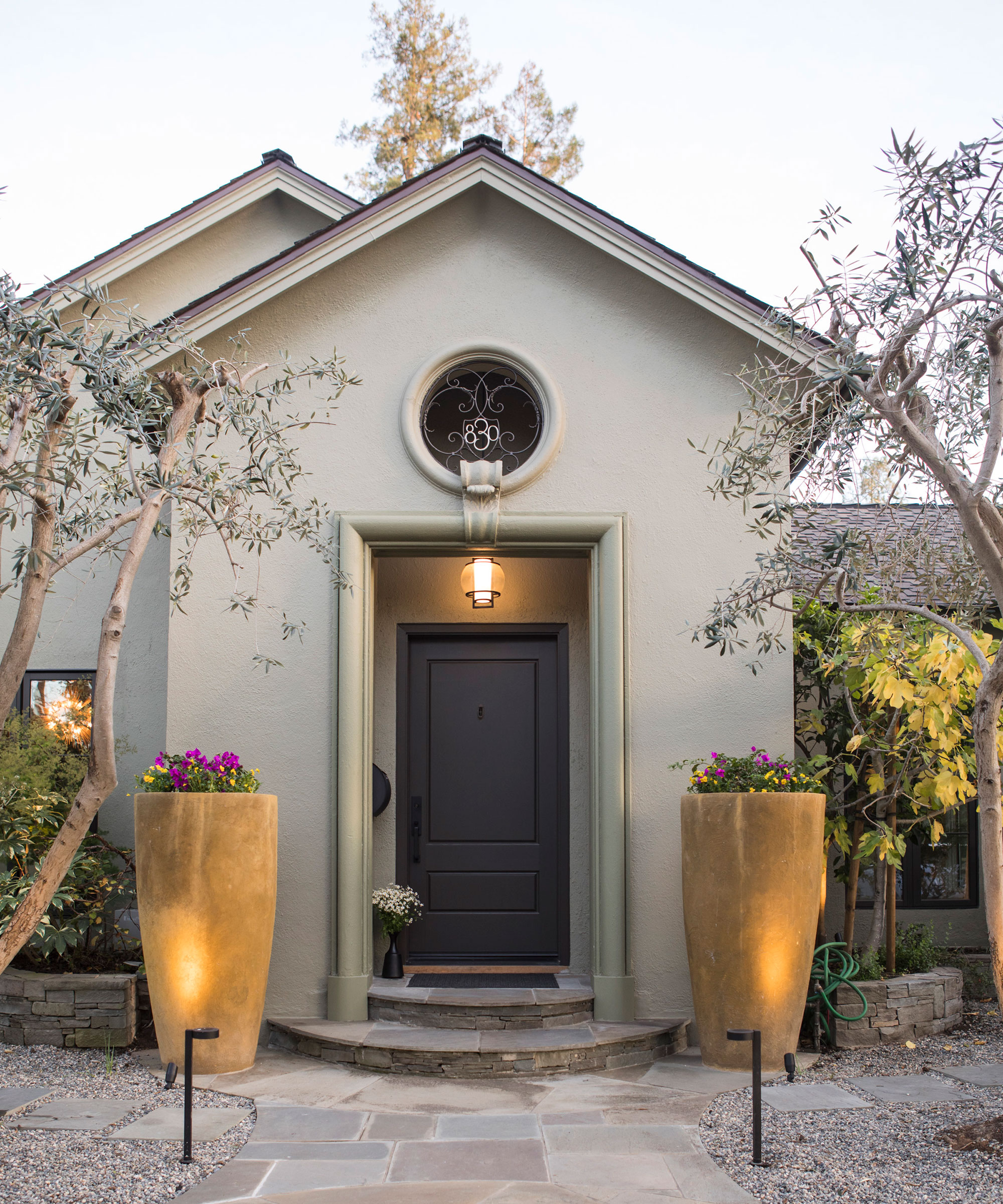
‘There are various hi-tech options for opening your front door while you sit in your car or from the office,’ says Elizabeth Assaf, co-founder and designer at Urban Front. ‘Keypad or fingerprint entry systems can be connected to your smart home system. Keypads allow you to use a card with an electronic strip, a fob or a simple number pad. These are usually connected to your smart home automation systems, to a motorised locking system, or Amazon’s Alexa.
Fingerprint entry lets you to enter up to 100 fingerprints, which you can then add and remove from your smart phone. You can also open the door remotely using the phone app. Both these options require a power supply close to the door. Biometric software options allow iris, face or voice recognition entry system. Becoming popular in the US, they’re on the higher end of the cost scale.’
What is the most popular front door material?
The most popular front door material will usually depend on the style, period and architecture of your home. Research your home's style and add an appropriate front door.
A range of materials are used to make front doors. UPVC doors have the advantage of being low maintenance, and high-quality versions look good.
Timber doors have natural beauty, but will need appropriate care, which could be repainting, or wood treatment from time to time. Options include solid wood, and wood veneer finishes on a core of wood or other materials. The latter is a composite door, but you’ll also find composite doors made from GRP (glass reinforced plastic) with a wood-look, or painted wood-style finish, which you won’t need to redecorate, just clean from time to time.
Front doors can also be made from steel with a galvanized or painted finish. They’re very robust and look smart. Aluminium doors are light but strong, and can be cleaned with a mild detergent solution.

Jennifer is the Digital Editor at Homes & Gardens, bringing years of interiors experience across the US and UK. She has worked with leading publications, blending expertise in PR, marketing, social media, commercial strategy, and e-commerce. Jennifer has covered every corner of the home – curating projects from top interior designers, sourcing celebrity properties, reviewing appliances, and delivering timely news. Now, she channels her digital skills into shaping the world’s leading interiors website.